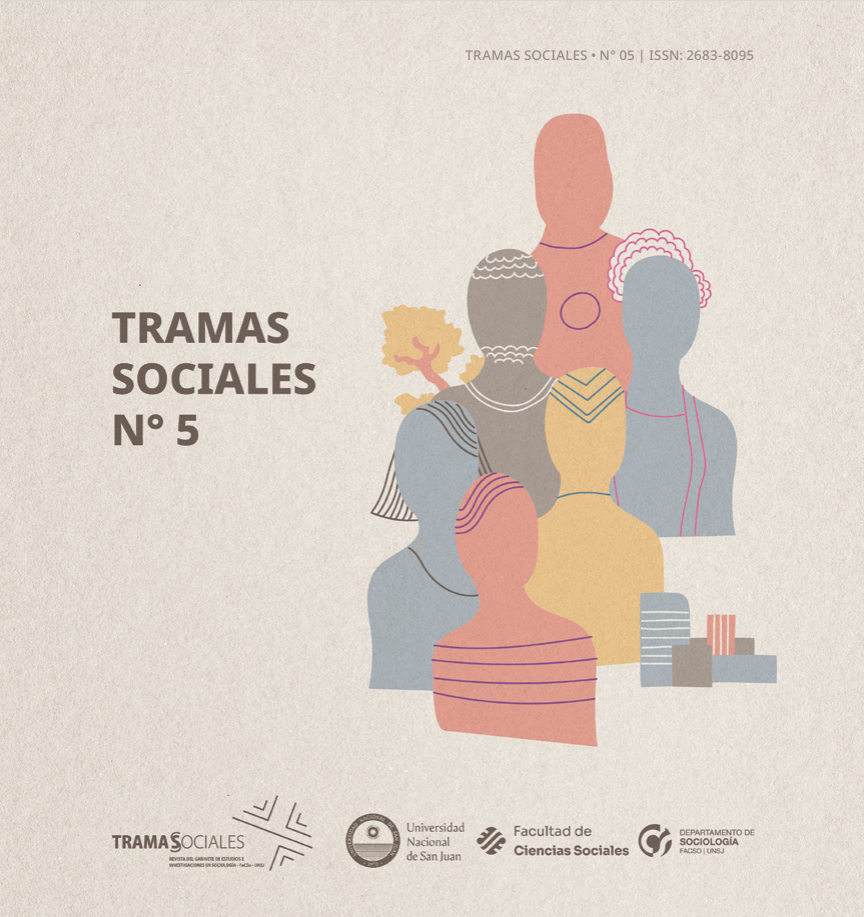Epistemological Dialogue: Reflections on the History of Science and Theories of Knowledge
Main Article Content
Abstract
"Within the framework of the Epistemology Chair of the Social Sciences Program at the National University of San Juan, Professor Alicia Russo, former chairholder, was invited to give an Open Class on science and theories of knowledge. The activity, held in the spring of 2022, was promoted by the current chairholder, Professor Sandra Lambiase, and the Assistant Professor, Lic. Paloma Chousal Lizama. Through an engaging language, resulting from the dialogue between the invited professor and students of the Faculty of Social Sciences, the class document proposes a broad overview starting from elements of Greek culture to contemporary transdisciplinary epistemological approaches.
Beginning with an understanding of epistemology and the discussion about the definition of science, the document highlights the conceptions that different schools of thought bring into tension. Different moments in the history of knowledge are identified with the intention of clarifying and deepening the necessary contextualization of epistemological discussions in their continuities and discontinuities. For this purpose, a chronological clarification is incorporated (birth and death years of each author) to facilitate the temporal organization of the presented ideas."
Article Details

This work is licensed under a Creative Commons Attribution-NonCommercial-ShareAlike 4.0 International License.
Aquellos autores/as que tengan publicaciones con esta revista, aceptan los términos siguientes:
- Los autores/as conservarán sus derechos de autor y garantizarán a la revista el derecho de primera publicación de su obra, el cuál estará simultáneamente sujeto a la Licencia de atribución (BY) no comercial (NC) compartir igual (SA) 4.0 (CC BY-NC-SA 4.0) que permite a terceros compartir la obra siempre que: a) otorgue el crédito correspondiente al autor/a, proporcione un enlace a la licencia e indicar si se realizaron cambios, b) no utilice el material con fines comerciales y c) si remezcla, transforma o crea a partir del material, debe distribuir las contribuciones bajo la misma licencia que el original.
- Los autores/as podrán adoptar otros acuerdos de licencia no exclusiva de distribución de la versión de la obra publicada (p. ej.: depositarla en un archivo telemático institucional o publicarla en un volumen monográfico) siempre que se indique la publicación inicial en esta revista.
- Se permite y recomienda a los autores/as difundir su obra a través de Internet (p. ej.: en archivos telemáticos institucionales o en su página web) antes y durante el proceso de envío, lo cual puede producir intercambios interesantes y aumentar las citas de la obra publicada. (Véase El efecto del acceso abierto).
References
Chalmers, A. (2000) ¿Qué es esa cosa llamada ciencia? 3ra. Revisión. Cap. 5, 6 y 7. Madrid España, Editorial Siglo XXI.
Feyerabend, P. (1989)., Contra el método. Barcelona, España: Editorial Ariel. Introducción, Cap. 9 y Cap. 10.
García, R. (2006). Epistemología y Teoría del Conocimiento. Salud Colectiva. 2(2):113-122.
Hempel, C. (1996). Filosofía de la Ciencia Natural. Madrid: Alianza Edit. Introducción, Caps. 1, 2, 3, 4 y 5.
Hempel, C. (2005). La explicación científica. Barcelona, España: Paidos. Cuarta parte: cap. 9.
Hume, D. (2004). Investigación sobre el conocimiento humano. Madrid: Istmo.
Kuhn, T. (1996) La estructura de las revoluciones científicas. Buenos Aires: Fondo de Cultura Económica.
Lakatos, I. (1993). Historia de las ciencias y sus reconstrucciones racionales. Madrid: Editorial Tecnos. Introducción, Cap. 1.
Locke, J. (1999). Ensayo sobre el entendimiento humano. México: Fondo de Cultura Económica.
Popper, K. (1983). Sobre las fuentes del conocimiento y la ignorancia. En El desarrollo del conocimiento científico. Conjeturas y refutaciones. Barcelona, España: Paidós.
Popper, K. (1985). La lógica de la investigación científica. Madrid: Tecnos. Primera parte: caps. 1 y 2. Segunda parte: caps. 4 y 5.
Russell, B. (1973). Un ensayo sobre los fundamentos de la geometría. Traducción al español por J. Porcel. Obras Completas Tomo II. Madrid
Wittgenstein, L. (2021). Investigaciones filosóficas. Trotta.
